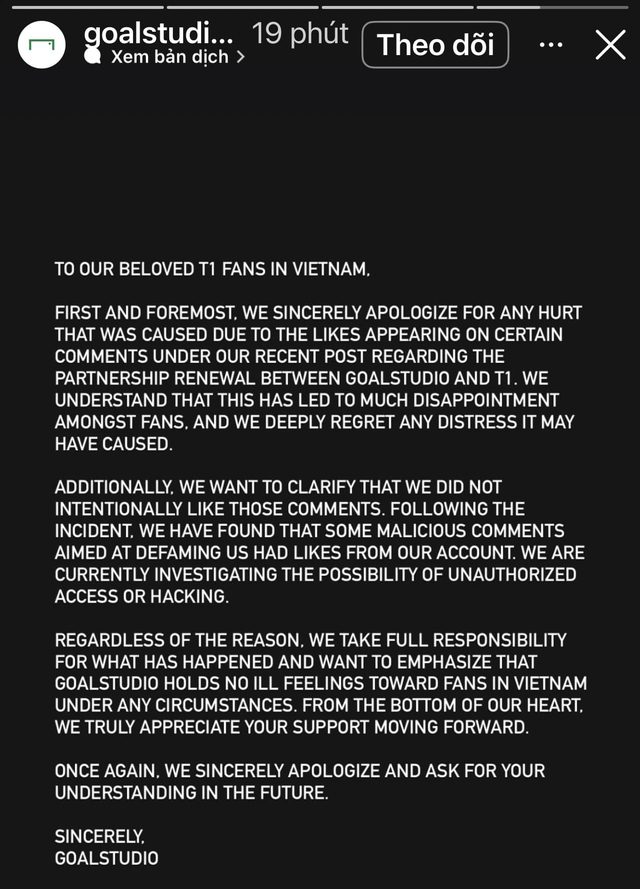“Excited” T1 Fans in Vietnam Respond to Apology, But Still Feel “Burned”
In the midst of the ongoing drama involving T1 and Gumayusi, many fans have expressed their frustrations over the team’s poor performances, likening them to incidents involving players like Doran and KLEVV. Additionally, some fans have taken to social media to voice their disappointment over the perceived lack of effort from the team, which has only added to the tension. Recently, Goals Studio, a company that provides clothing support for T1, sparked a wave of backlash with a post that hinted at negative sentiments directed at Vietnamese fans. The comments were primarily focused on the absence of Doran in a promotional clip for the company’s collaboration.

The immediate reaction from Goals Studio has only fueled the community’s frustration, leading to even more outrage. In a subsequent story, they issued an apology that only seemed to escalate the anger among fans. Instead of taking responsibility, the company shifted the blame to… hackers.
According to some opinions, a mere apology post often comes across as insufficient for T1 fans, especially those in Vietnam, who expect a more substantial response rather than a transient story that lasts just 24 hours. It is worth noting that this company also has a distribution branch in the region.

T1 is Actually a World Championship Team of Historical Significance
With T1, in the past, there has never been a moment when they had to face such challenges. The 2020 – 2021 season, when Faker was at the top of his game, sparked debates, but fans could still clearly see the team’s potential. Then, during the remarkable 2017 World Championship, the team was still able to garner significant support. Currently, however, the situation feels entirely different.

After being crowned the most historically significant team in League of Legends, T1 now faces a wave of confusion and frustration among its fans, who feel the pressure while their competitors are making significant strides. Ultimately, the source of these issues often lies with the management, whose traditional approaches and lack of transparency have been less than effective.





















